Saving time, strengthening care
Time is a resource that’s often in short supply in cardiac care. Cardiovascular diseases affect more than 640 million people globally,¹ and providers are losing valuable time due to data inefficiencies and administrative burdens. Patients also feel the strain, with delays leading to worsening health.
Amid these challenges, AI has emerged as an ally that could help meet rising demands. Our Future Health Index 2025 surveyed cardiac care professionals and patients about using AI and digital technologies to reclaim time, reduce delays and deliver better care for more people.
The clock is ticking: care delays threaten the health of cardiac patients
Our survey shows that cardiac care delays are a global challenge, with 9 in 10 cardiac patients experiencing delays to see a specialist and an average longest wait time of almost 12 weeks. These delays have very real consequences: almost 1 in 3 cardiac patients reported that their condition worsened during their wait to see a doctor, which resulted in admission to a hospital.
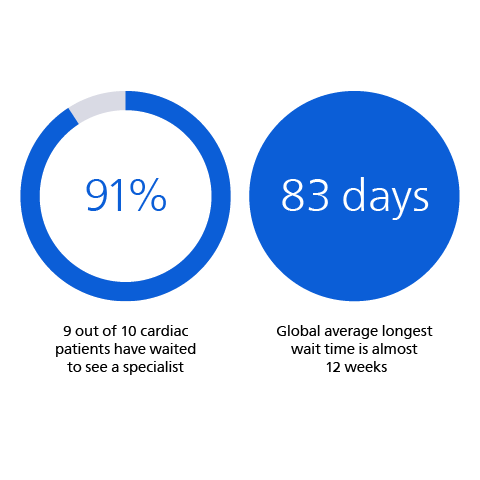
Time lost: the burden on cardiac care professionals
Findings show 79% of cardiac care professionals lose clinical time due to incomplete or inaccessible patient data, with almost half of these losing over 45 minutes per shift. Adopting AI and digital technologies could simplify data management so providers can focus on what matters – patients.
While patients anxiously wait for care, providers lose valuable time to frustrating data inefficiencies.
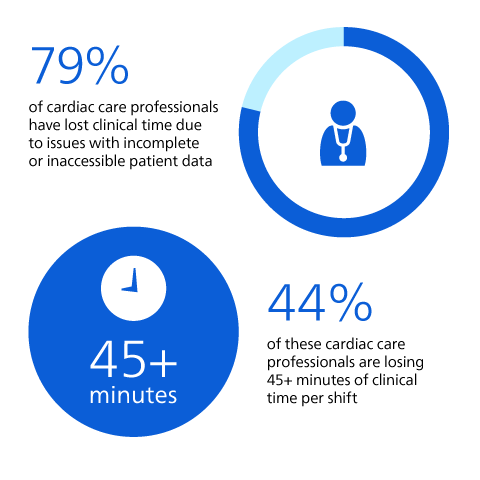
AI frees up more time for better patient care
Our findings show 91% of cardiac care professionals find joy and purpose by connecting with patients. They believe, when done right, AI can help them reclaim valuable time and improve patient care. Findings show 4 in 5 cardiac care professionals believe AI could automate repetitive tasks, extend capacity – and provide other benefits. And 79% think AI could help reduce cardiovascular diseases.
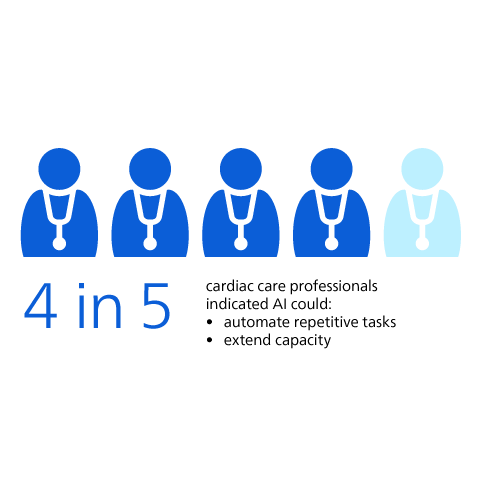
Identifying and preventing health issues with AI and predictive analytics
More than half of them believe AI-powered predictive analytics could help optimize treatment protocols and personalize treatment plans. Half of the cardiac care professionals also see opportunities for AI support in enabling earlier interventions and improving resource allocation.
Cardiac care professionals seek earlier diagnosis and more precise treatment of cardiac patients to improve outcomes.
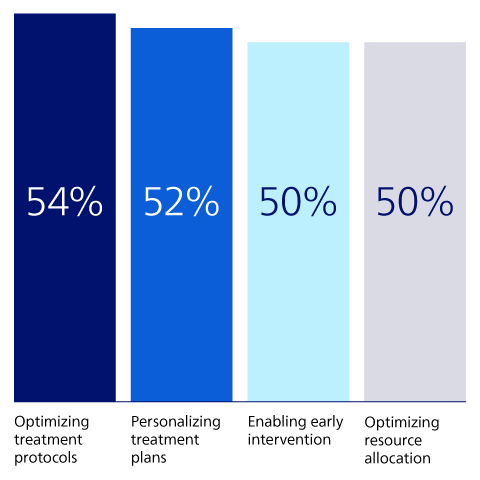
Cardiac care professionals are optimistic about AI. Patients? Not yet.
The trust disparity between cardiac care professionals and patients is clearer when discussing AI in patient care. Findings show that more than 4 in 5 professionals express confidence that AI could improve patient outcomes. However, only 56% of cardiac patients share that optimism. They reported worries about the impact of digital technologies, fearing that healthcare could feel less personal.
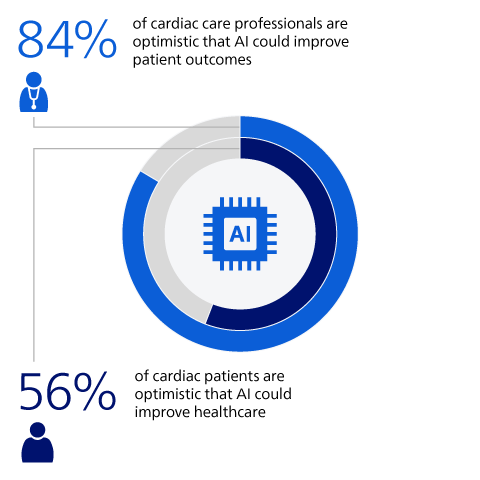
Building trust with cardiac care professionals and patients
For patients, caregivers play a pivotal role in building trust. Their comfort with AI increases when they’re informed by their doctors, nurses and healthcare systems.
What’s needed to strengthen trust in AI for cardiac care professionals and patients? More than a third of professionals say they’re concerned about clarity on legal liability and knowing that AI systems are monitored and evaluated.
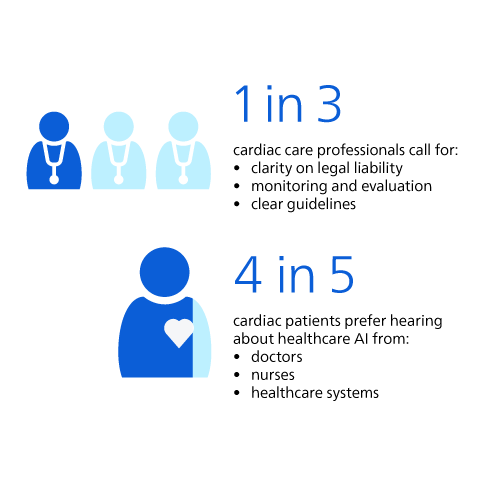
Five recommendations to build trust in healthcare AI with patients and professionals

Put people first in AI design

Enhance human-AI collaboration

Demonstrate efficacy and fairness

Enable innovation with clear guardrails

Build strong cross sector partnerships
“Trust in healthcare AI starts by putting patients at the center. When we design with empathy, collaborate openly, prove outcomes, and set clear boundaries, we earn the confidence of both patients and healthcare professionals.
You are about to visit a Philips global content page
Continue“I believe that the future of healthcare depends on AI-enabled solutions that empower healthcare professionals and patients in ways that are secure, transparent, equitable and responsible. Scaling these innovations sustainably will require deep collaboration across the healthcare industry.”
You are about to visit a Philips global content page
Continue
The Future Health Index is commissioned by Philips
In its 10th edition, the Future Health Index 2025 investigates how innovative technologies, particularly artificial intelligence (AI), can empower healthcare professionals to deliver better care for more people. Two quantitative surveys were carried out among over 1,900 healthcare professionals and over 16,000 patients in 16 countries (Australia, Brazil, Canada, China, France, Germany, India, Indonesia, Japan, Netherlands, Saudi Arabia, Spain, South Africa, South Korea, the United Kingdom and the United States). The surveys were conducted from December 2024 to April 2025.
¹ Global Heart & Circulatory Diseases Factsheet, The British Heart Foundation’s Global Heart & Circulatory Diseases Factsheet, January 2025.




